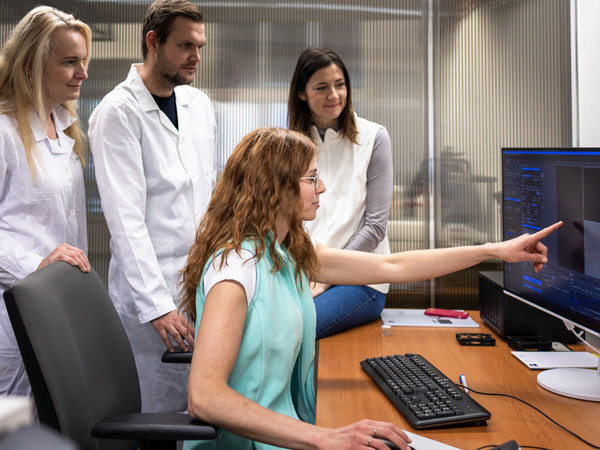Scientists from the Czech Advanced Technologies and Research Institute – CATRIN at Palacký University will participate in the development of a new generation of brain implants using the Nobel Prize-winning material graphene. Thanks to success in the Horizon Europe Hop On Facility grant call, they will join the already ongoing international European Innovation Council (EIC) MINIGRAPH project. The task of the Olomouc scientists will be to verify the biocompatibility of graphene implants to living cells, and to propose a better composition without adverse effects. In the first ever Hop On Facility call, only five applicants were supported in the Czech Republic.
Since July, the project with the acronym MINIGRAPH2 has been incorporated as a separate work package of the MINIGRAPH project (https://minigraph-project.eu), coordinated by the Catalan Institute for Nanoscience and Nanotechnology (ICN2) in Barcelona. The aim of the project is to develop and validate a new generation of brain implants very precisely and gently placed in the skull using electronics, which can stimulate the brain’s neural activity to treat or improve certain neurological diseases, such as Parkinson’s disease. The miniature electrodes with graphene, a carbon material with which CATRIN scientists have extensive experience, play an important role in the system.
“Our goal is to test the cytotoxicity of graphene neural implants at the cellular and molecular level. This way we can identify their potential side effects and contribute to the design of better, more biocompatible materials. After all, a key consideration for their use in human medicine is their safety and harmlessness. Our team therefore brings important added value to the consortium and can play a key role in regulatory approval processes,” said research team leader Kateřina Poláková.
CATRIN researchers will use two approaches, namely experimental and theoretical. In the experimental part, they will investigate the interaction of graphene materials with cells. “Here we will use our previous experience with testing the cytotoxicity of 2D graphene materials in vitro, i.e. in laboratory conditions. Whether it is commercially produced graphene oxide or new graphene derivatives developed at CATRIN,” explained Poláková. The second approach using computational chemistry will focus on creating models of modified graphene according to the exact experimental composition. “We will then use the validated graphene models to study their interactions with models of neural membranes, focusing in particular on the effect of the size, shape and composition of the graphene materials used. These calculations will provide information about the interactions between nano- and biomaterials at the atomic level,” said Markéta Paloncýová, another member of the research group.
CATRIN researchers are among a few group of Czech applicants who have been successful in the Horizon Europe Hop On Facility (HORIZON-WIDERA_2022-ACCESS-07). This is a completely new scheme that allows a partner from a so-called widening country to join a consortium of one of the awarded EIC Pathfinder grants or other RIA projects from Horizon Europe Pillar II during the course of the solution. The new partner must bring added value to the existing consortium through its original and highly complementary scientific focus. Within the MINIGRAPH project, scientists from Olomouc are collaborating with seven other partners from five European countries. Local junior researchers and PhD students from Palacký University will also have the opportunity to collaborate with academic and commercial entities with extensive European or global experience in the field of neuroimplants.
